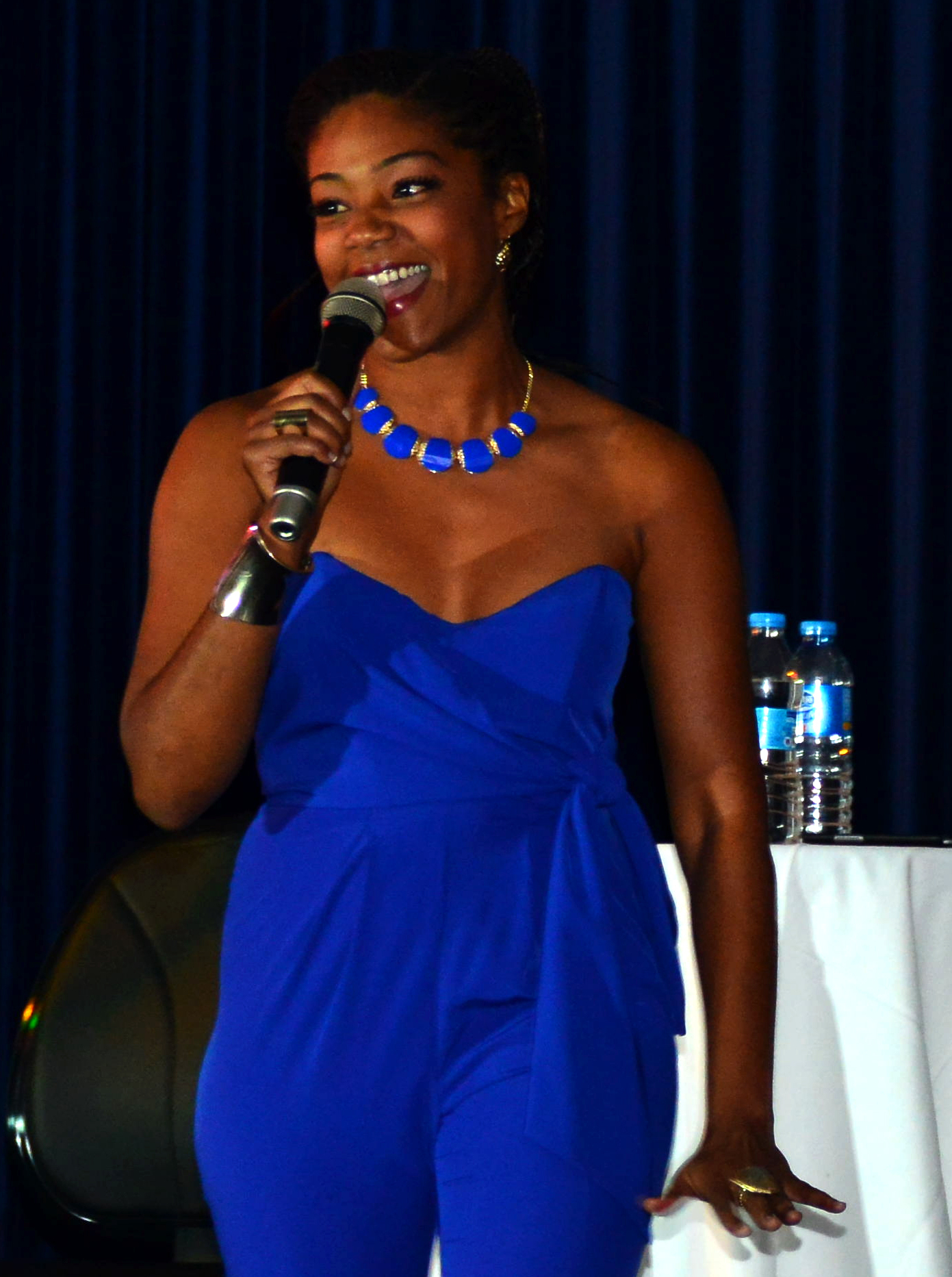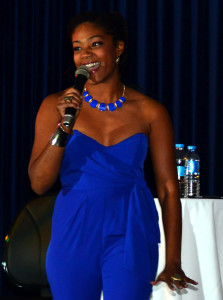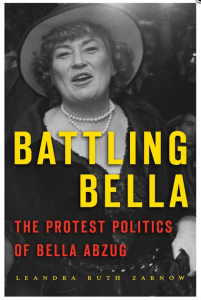
7 Jewish Feminist Highlights of 2019
-
Justice Ruth Bader Ginsburg, aka the Notorious RBG, is the 2019 recipient of the Berggruen Prize for Culture and Philosophy. This prize comes with a cool $1 million which Ginsburg will donate to charity. Ginsburg is specifically being honored for “her work in pioneering gender equality and strengthening the rule of law” as well as “extending women’s rights and human rights rooted in ethical principles.” A poster featuring the verse from Deuteronomy “Justice, Justice, thou shalt pursue” hangs on the walls of her chamber as a daily reminder that “the demand for justice, peace and enlightenment runs through Jewish history and tradition.” Jewish feminists have reason to rejoice as RBG is recognized for making good on those demands.
-
Tiffany Haddish celebrated her 40th birthday not only with her “Black Mitzvah”
 Nextflix special but also with her bat mitzvah. Fab photos shared widely on the internet include Haddish reading Torah with Rabbi Susan Silverman at her side, fellow funny Jew Billy Crystal on hand, and Black Mitzvah yarmulkes (Babs couldn’t make it, but she tweeted “Mazel tov” and sent Haddish a star of David necklace). As Rebecca Pierce writes, such images as well as Haddish’s claiming Jewish space are particularly important for Black Jews, who too often experience alienation in Jewish settings where they’re “supposed to be.” In her comedy special, Haddish repeatedly says, “I’m here to teach.” May her bat mitzvah photos teach all who don’t already know it that Black is a beautiful Jewish color.
Nextflix special but also with her bat mitzvah. Fab photos shared widely on the internet include Haddish reading Torah with Rabbi Susan Silverman at her side, fellow funny Jew Billy Crystal on hand, and Black Mitzvah yarmulkes (Babs couldn’t make it, but she tweeted “Mazel tov” and sent Haddish a star of David necklace). As Rebecca Pierce writes, such images as well as Haddish’s claiming Jewish space are particularly important for Black Jews, who too often experience alienation in Jewish settings where they’re “supposed to be.” In her comedy special, Haddish repeatedly says, “I’m here to teach.” May her bat mitzvah photos teach all who don’t already know it that Black is a beautiful Jewish color.
-
In November, voters put Virginia’s state government in the hands of Democrats, and Eileen Filler-Corn will be the first woman and the first Jew to serve as Speaker of the House. Gun control and gender equality in the form of the Equal Rights amendment are among her top priorities. This “proudly Jewish” politician is a coalition builder and helped to elect the first trans, Latina and Asian representatives to the Virginia House in 2017.
-
In a new political biography, Battling Bella: The Protest Politics of Bella Abzug,
 historian Leandra Ruth Zarnow views this “ambassador of underdogs” as a “visionary for our times as much as hers.” Abzug, a politician once called “the political Rabbi and Godmother of the Women’s Movement,” was a champion of gay rights, the environment, universal health and child care, and a living wage. Bella “actively urged Jewish women to become feminists and Jewish feminists to affirm their Judaism,” even as her socialist Zionism put her at loggerheads with her Leftist comrades.
historian Leandra Ruth Zarnow views this “ambassador of underdogs” as a “visionary for our times as much as hers.” Abzug, a politician once called “the political Rabbi and Godmother of the Women’s Movement,” was a champion of gay rights, the environment, universal health and child care, and a living wage. Bella “actively urged Jewish women to become feminists and Jewish feminists to affirm their Judaism,” even as her socialist Zionism put her at loggerheads with her Leftist comrades.
-
The DC Dyke March started out by banning Jewish Pride flags because they resemble the Israeli flag. Strategic and persistent activists—supported by allies from Zioness, A Wider Bridge, and other organizations—spoke up, showed up and were ultimately allowed to bring their whole selves and their symbols of choice to the demonstration. Kudos to the National LBTQ Taskforce for withdrawing support of the event and to the Jewish Dykes who refused to be, as Adrienne Rich put it, “split at the root.” Allies who supported Dykes bearing Jewish Pride flags while honoring that Dyke marches need to be queer women-centered spaces also deserve credit. So do the marchers who, according to Carly Pildis, “expressed deep sadness that any queer woman felt the need to have allies protecting them at the Dyke March.”
-
The Association for Jewish Studies has rolled out detailed procedures for addressing charges of sexual misconduct. Members of a trained ombuds team are available to receive reports and to advise those who have been on the receiving end of sexual misconduct about their options, which range from archiving the complaint to initiating formal hearings. Kudos to this professional association for proactively dealing with #Me Too in Jewish Studies. The latest edition of AJS Perspectives, edited by Chaya Halberstam and Mira Sucharov is “The Patriarchy Issue” and includes “Why It Was So Hard to Say #Me Too and What I Learned When I Finally Did” by Keren R. McGinity.
-
Paula Eiselt, whose documentary 93 Queen received a great deal of well-deserved attention last year, has been named creative consultant for the Jewish Writer’s Initiative, designed to nurture significant, diverse, and subtle Jewish-themed films and other media. Writers selected to participate will receive a stipend as well as mentoring. This initiative is a partnership between Crystal City Entertainment and the Maimonides Fund. According to Eiselt, “For artists passionate about Jewish content, this is groundbreaking.” Given Eiselt’s own successful but challenging experiences making a film about Hasidic women determined to serve their community as EMT’s, she’ll be a valuable resource to those who have compelling and innovative Jewish stories to tell.
Helene Meyers is Professor of English and McManis University Chair at Southwestern University in Texas. The author of three books, most recently Identity Papers: Contemporary Narratives of American Jewishness, she is currently completing a book on Jewish American movies. Find her on Twitter: @helene_meyers.
The views and opinions expressed in this article are the author’s own and do not necessarily reflect those of Lilith Magazine.




